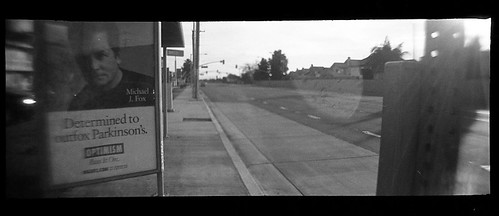BUS STORY # 367 (Portrait # 23: Rupert)
I don’t really know his name. I call him Rupert because Rupert Brooks is the British poet who wrote "The Soldier" after his military experiences at Antwerp in World War I.
World War I makes me think of “shell shocked,” a diagnosis that came out of “The Great War” which described a constellation of symptoms afflicting a large number of soldiers fighting in the trenches.
“Shell shocked” also makes me think of Rupert. The bus rider, not the poet. The poet died in 1915 on a hospital ship after contracting blood poisoning. I think maybe Rupert Brooks would have written a very different poem if he had lived to be Rupert the bus rider’s age.
Rupert the bus rider is a regular. He gets on at the same place, and he gets off at the same place, and he does that more often than not on the days I ride on this particular bus and this particular schedule.
He’s a big guy, a tall guy, slightly stooped. The first thing you notice is that he moves very slowly and very deliberately.
The next thing you notice is his face. It is a frozen, expressionless face, the mouth open, the eyes not moving but focused, almost fiercely so.
When he sits, he picks a seat on the aisle, and he turns slowly, and slowly lowers himself into it. He keeps one hand on the seat in front of him after he’s seated, while the rest of him leans forward and watches out the front windshield.
I know he is watching for the landmarks that tell him where his stop is, and he is prepared to begin the process of getting off the bus. He is paying attention. Nothing distracts him from his watch or his position.
I know this is not shell shock. For one thing, the diagnosis itself is outdated. For another, he may be an old guy, but he’s no 125-year-old World War I vet. It is highly improbable he’s British. I’ve googled his behavioral characteristics and come up with a slew of hits for Parkinson’s.
The first time he sat in the seat in front of me, I saw an area behind one ear that was either an old burn or a skin graft.
I noticed his thinning hair was neatly combed. He’d shaved that morning, but had missed some spots in the difficult places.
One morning, after his stop, we were also stopped for the light. I looked for him outside the window and didn’t see him at first. I twisted in my seat and looked back. There he was, getting ready to light a cigarette! He was using matches, too, and he was successful, the match igniting after only one slow scratch. The whole process was a seamless flow of painfully slow, deliberate motions. Before we pulled away, I saw him take the lit cigarette between his thumb and fingers.
I think I know what makes me think “soldier.” It is not the cigarette -- I think of that as an act of independence, maybe even of defiance, one of the last pleasures left to him. Rather, it’s the thought that Rupert, despite the obvious limitations he has that the rest of us don’t, is getting out there and getting to wherever he’s going. He’s “soldiering on,” “a real trooper.”
Still, what makes this particular soldier “Rupert” is the shell shock.
__________
The photo at the top of this story is titled “Remember take hold of your time here,” © All Rights Reserved, and is posted with the permission of QsySue. You can see all QsySue’s photos on Flickr here.


0 Comments:
Post a Comment
<< Home